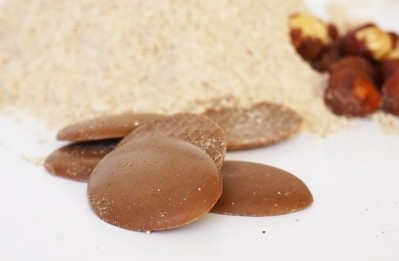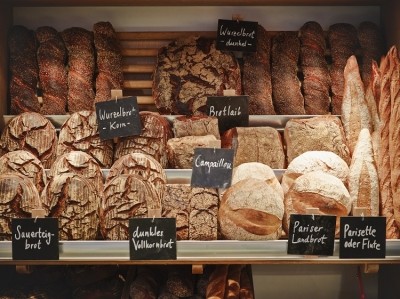Planetarians ties-up with Barilla, Amadori to innovate with up-cycled sunflower flour

Planetarians is an ingredient tech company that up-cycles by-products and solid food waste into high-protein, high-fibre ingredients. The company takes defatted sunflower seeds, the dry matter left after oil extraction, and turns this low-value side stream into a protein enriching ingredient.
Having first worked out how to break down the fibre in defatted sunflower seeds to produce a protein palatable for human consumption, Planetarians' R&D team then looked at how to balance the amino acid profile and increase the protein quality. The group developed a technology that sterilizes, destroys anti-nutrients and functionalizes fibre in one-step.
The sunflower flour has three times the protein and twice the fibre of wheat flour. According to the group's CEO, the sunflower-based flour contains 35% protein and 18% fibre and it can be produced at the same cost.
Manchuliantsau explained: “Planetarians' technology creates value for food processors who produce by-products and for food companies who can use our ingredients to develop nutritious and sustainable products for consumers.”
The Planetarians team were not alone in identifying the potential offered by this new protein source. Earlier this month, the group closed a $750k seed round to expand applications from up-cycled ingredients. Investors include Barilla Group's BLU1877, Techstars, SOSV, The Yield Lab and group of angels. Amadori can also be counted as an investor.
Barilla begins trials
Planetarians has been working with BLU1877 since last summer when the venture capital arm of the Italian pasta giant saw some samples of Planetarians’ chips made from up-cycled ingredients. During the autumn of last year the Barilla R&D team conducted lab tests on the ingredient. This lead to “full scale trials” at their R&D facility in Parma, Manchuliantsau told FoodNavigator, as well as a “surprise” offer to invest.
In tests conducted at Barilla's pilot plant in January and February of this year the group tested dough-based products including pasta, bread, biscuits, tortillas and crackers.
“The main goal was to identify the optimal usage level of Planetarians' flour to keep the same parameters and characteristics in industrial technical process and final product,” Manchuliantsau explained.
Barilla’s conclusions were positive. In bakery applications, researchers found that the same workability can be achieved by increasing water content. No macro problems were reported in forming, baking or during the yeast leavening stage.
In pasta, the R&D team reported greater absorption capacity than semolina, meaning it is “more difficult to set water absorption” than semolina. However, no macro problems were found in standard pasta processing (with a focus on the extrusion phase, where no over-pressure was registered). Other results included “good machinability”, “good seal in forming and cutting” and no macro problems in drying. The impact on shelf live is still under evaluation.
“Given these results, it turns out it is possible to move to the stage of development of a specific recipe, given the desired technical characteristics of the product and its taste,” Manchuliantsau concluded.
“Our goal was to confirm that our ingredients can work on standard equipment to allow it wide use. And we got it.”
Amadori sees potential for flexitarian blends
Meanwhile, Italian poultry specialist Amadori saw the potential to use the Planetarians ingredient to develop meat and vegetable protein blends that would appeal to consumers wanting to reduce their meat consumption.
“With Amadori we work on flexitarian meals, when we reduce cholesterol in meat applications replacing animal proteins with plant-based proteins, simultaneously enriching them with fibre,” Manchuliantsau said.
“During our first trials in February we made the burger patties, meatballs and breaded meat applications. Meatballs were the best.”
According to the report produced by Amadori, this is because the addition of sunflower flour resulted in “a loss of humidity which leads to a dry final product” but the addition of sauces, vegetables and tomato paste help to avoid dryness in the final product.
Amadori’s R&D team concluded: “In general, the product has shown a potential for the application in meat. The positive characteristics of the product are the colour, which is very similar to beef meat, and the increased amount of protein per serving.”
Trials kicking off this month have expanded an additional 10 product applications, including lasagna.
“Now we know that our ingredients work well not only in the lab, but at industrial scale plants,” Manchuliantsau reported.
Delivering differentiation
Manchuliantsau believes Planetarians’ innovation is significant because it enables food makers to differentiate their products on a number of levels.
“High-protein high-fibre Planetarians ingredients help food brands to convert bakery applications into a good source of protein,” he said, noting that the end products are in line with “all guidelines” to make an official “good source of protein" claim.
Bakery products made with the sunflower flour also have a “distinctive black colour”, that “allows brands to separate them from existing product lines”.
And finally, the use of this up-cycled ingredient allows food makers to highlight their sustainability credentials and reduce food waste in the value chain. “Offering products with up-cycled ingredients brands can combat the climate change with every bite and offer customers to do the same.”
“You don’t need to grow more crops, occupy more land, consume more water. Repurposing by-products for direct human consumption, you reduce the greenhouse emissions and combat the climate change. Making protein affordable you fight food insecurity for current and future generations.”
Planetarians plans to continue to leverage its relationship with Amadori and Barilla to develop fresh applications and bring products to market at a commercial scale.
“Amadori is ready to start market tests once we get EFSA approval to use our ingredients in food application on the EU territory. And I invite all other companies to join our up-cycled movement.”



























